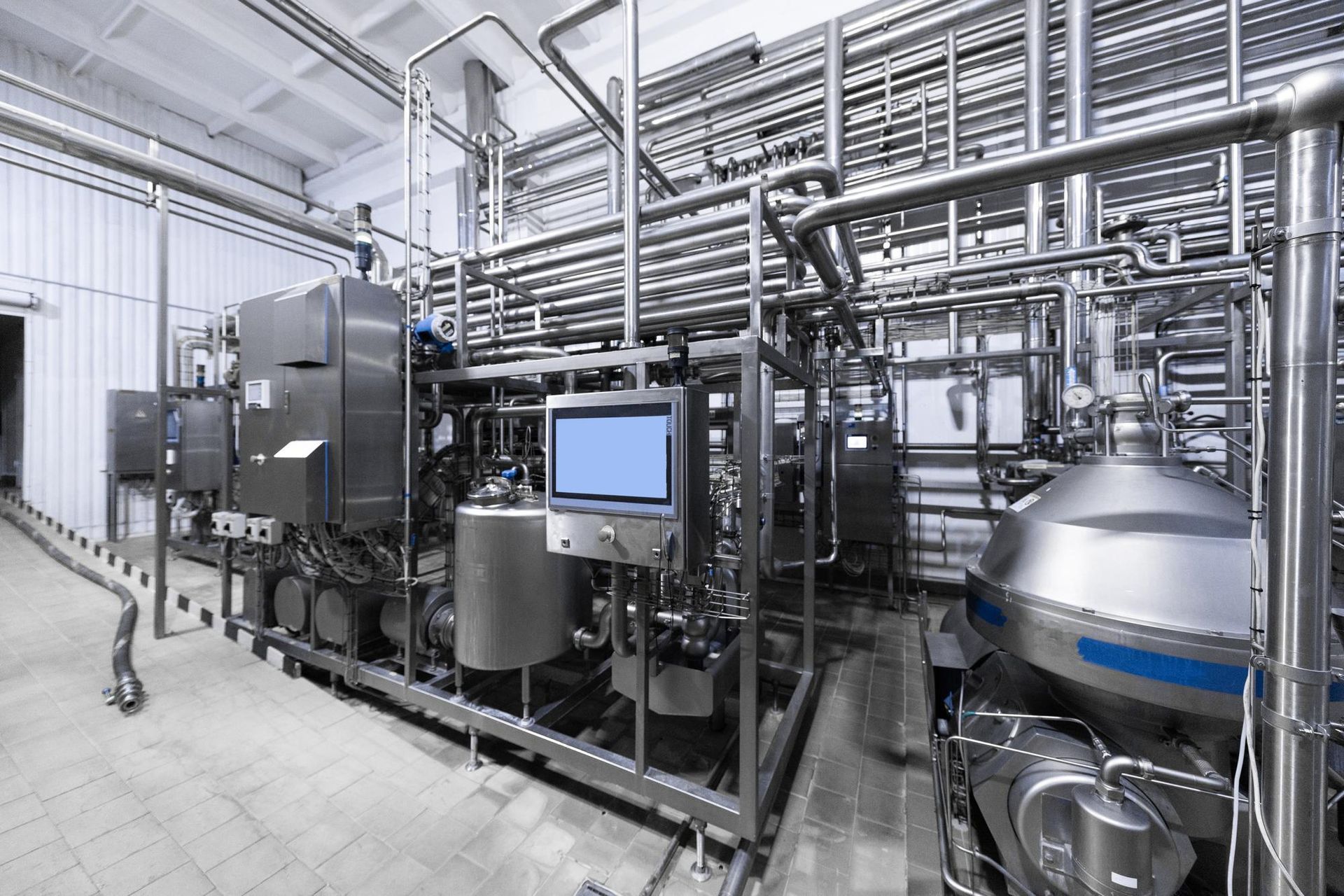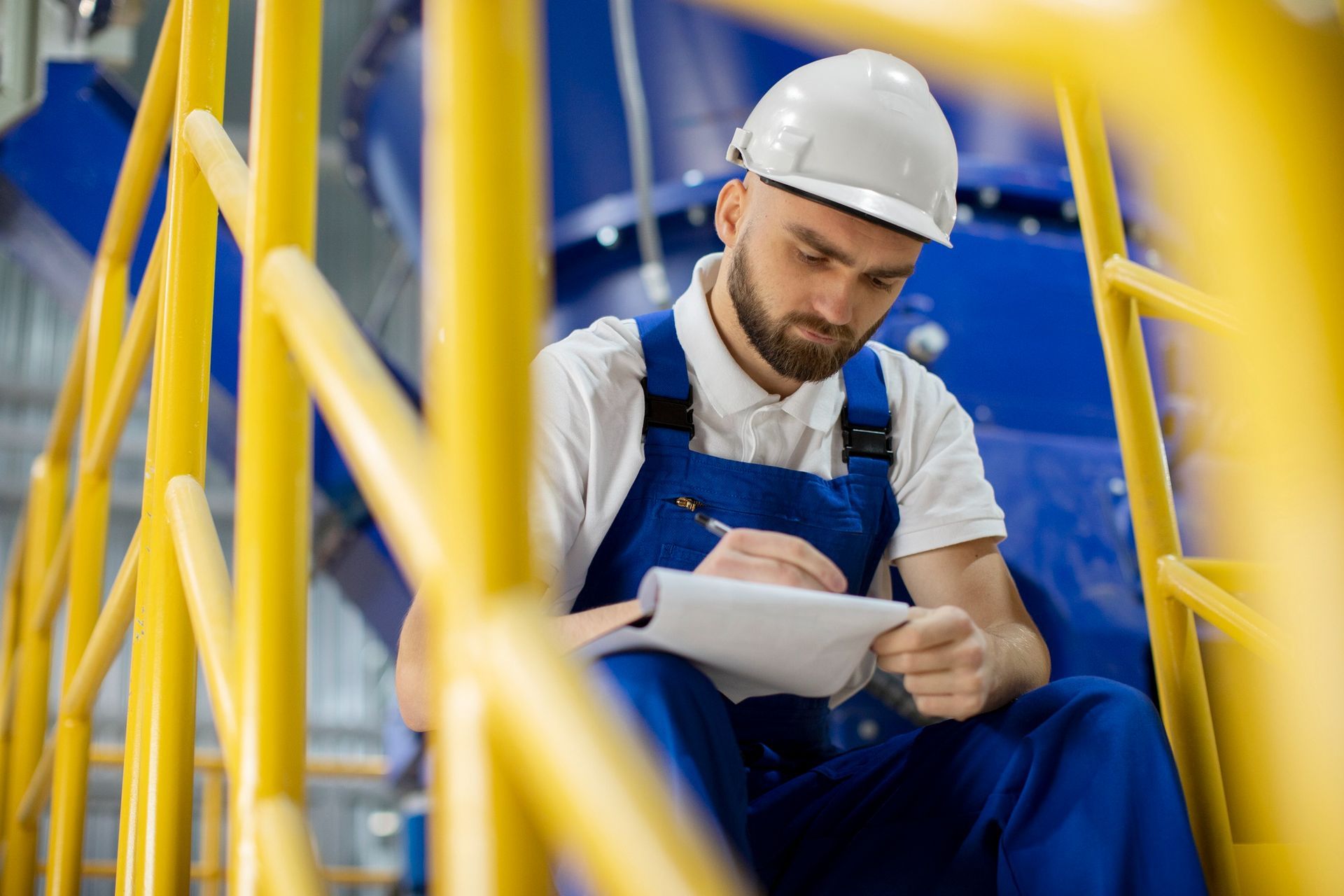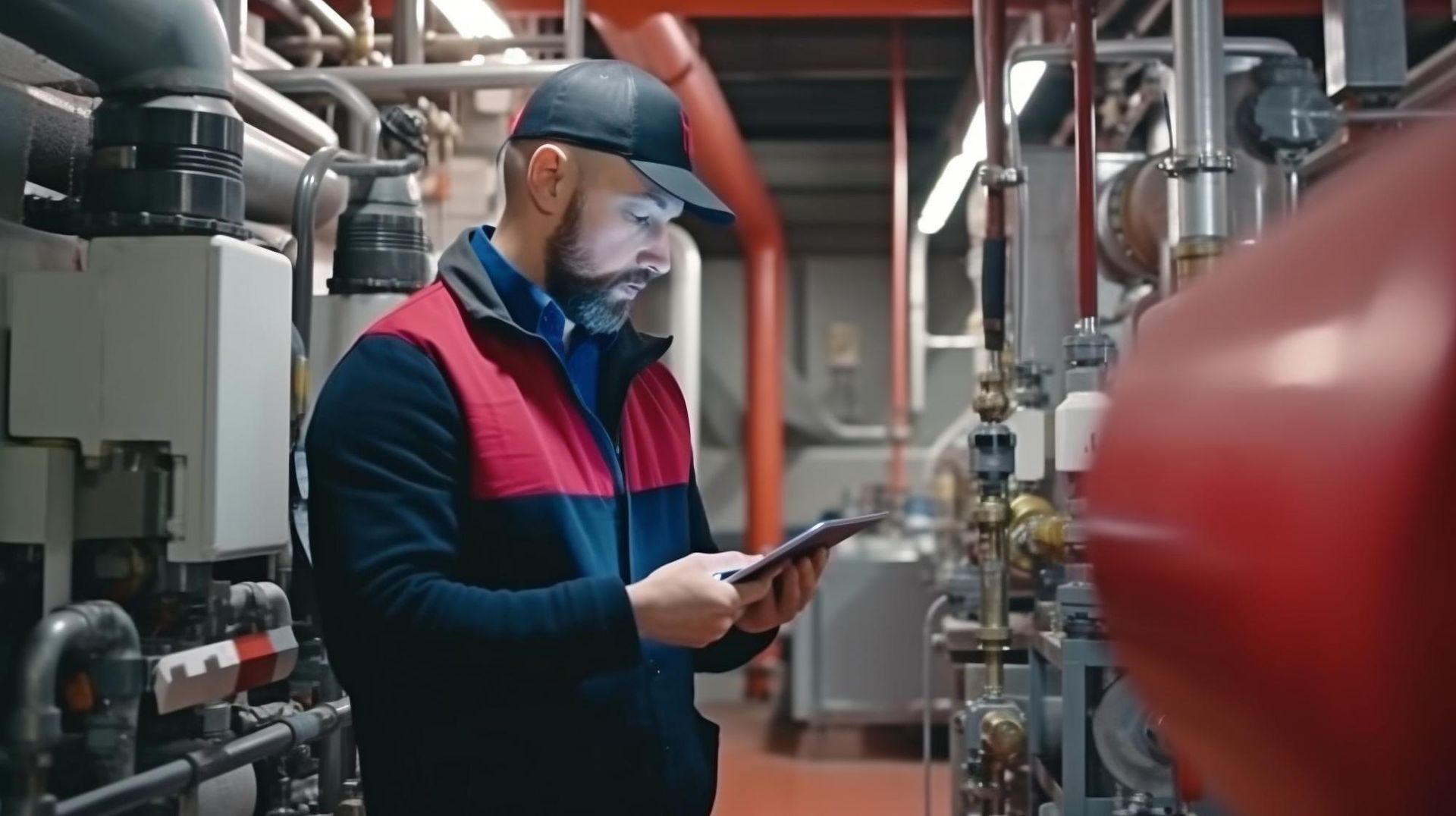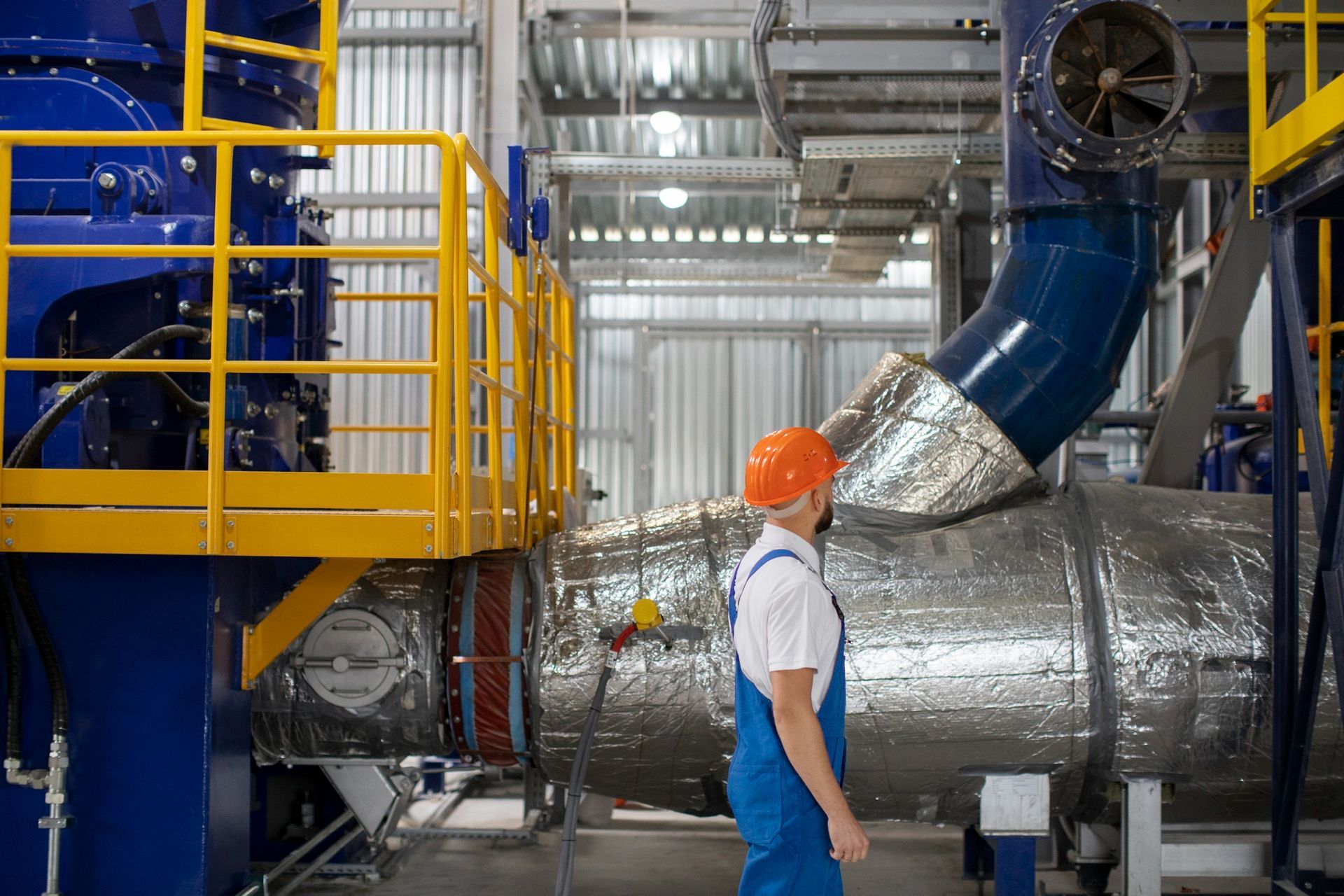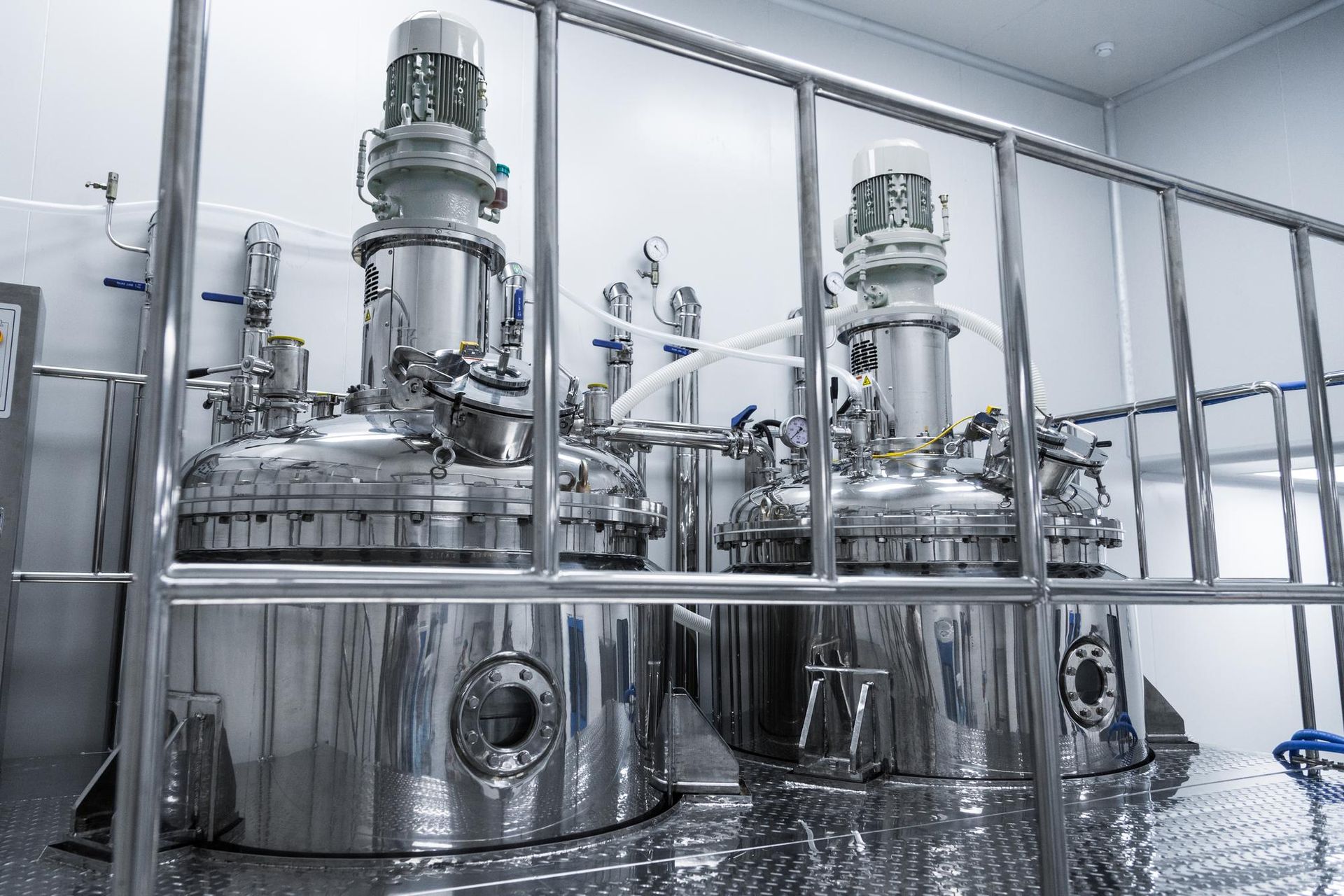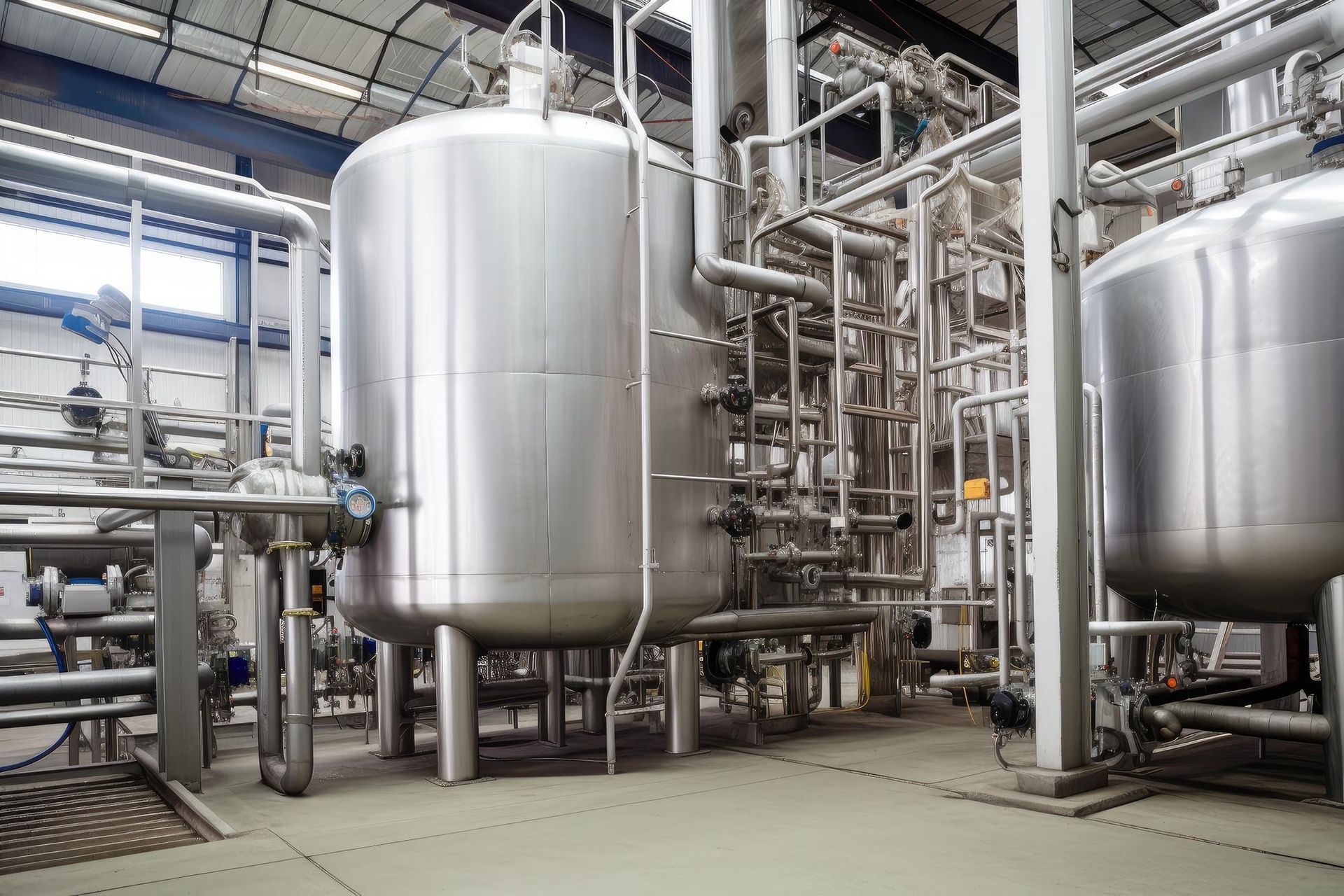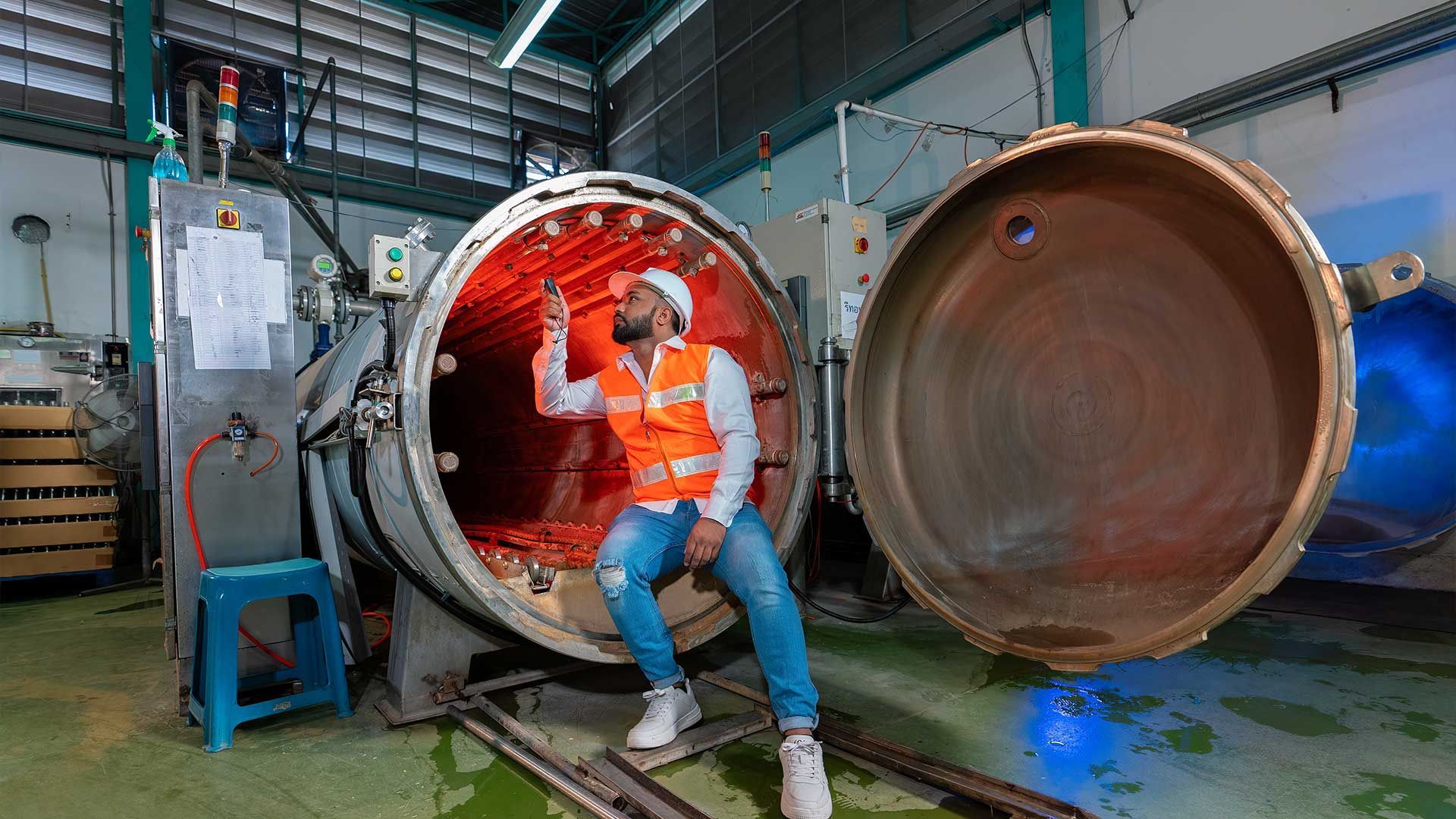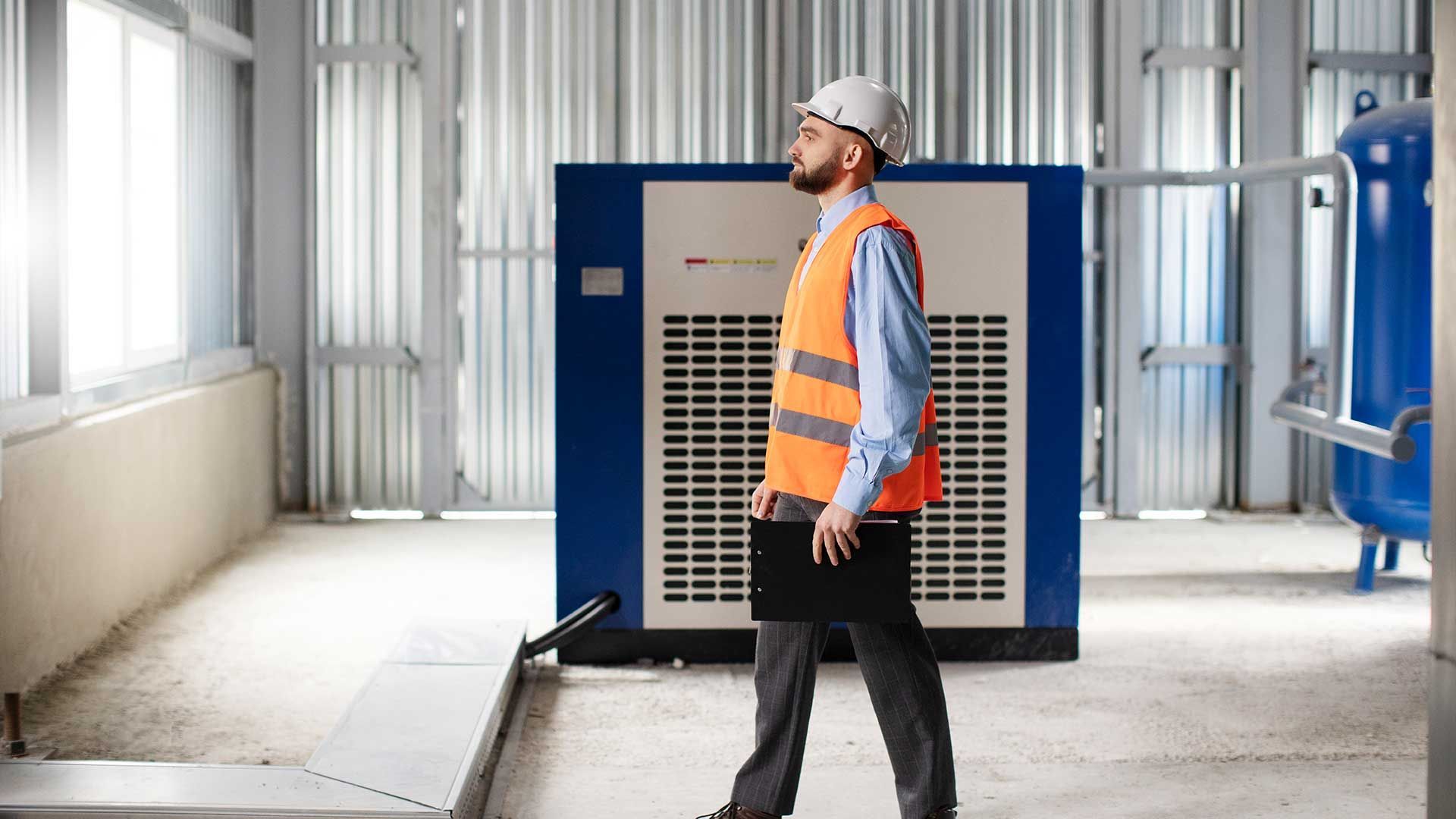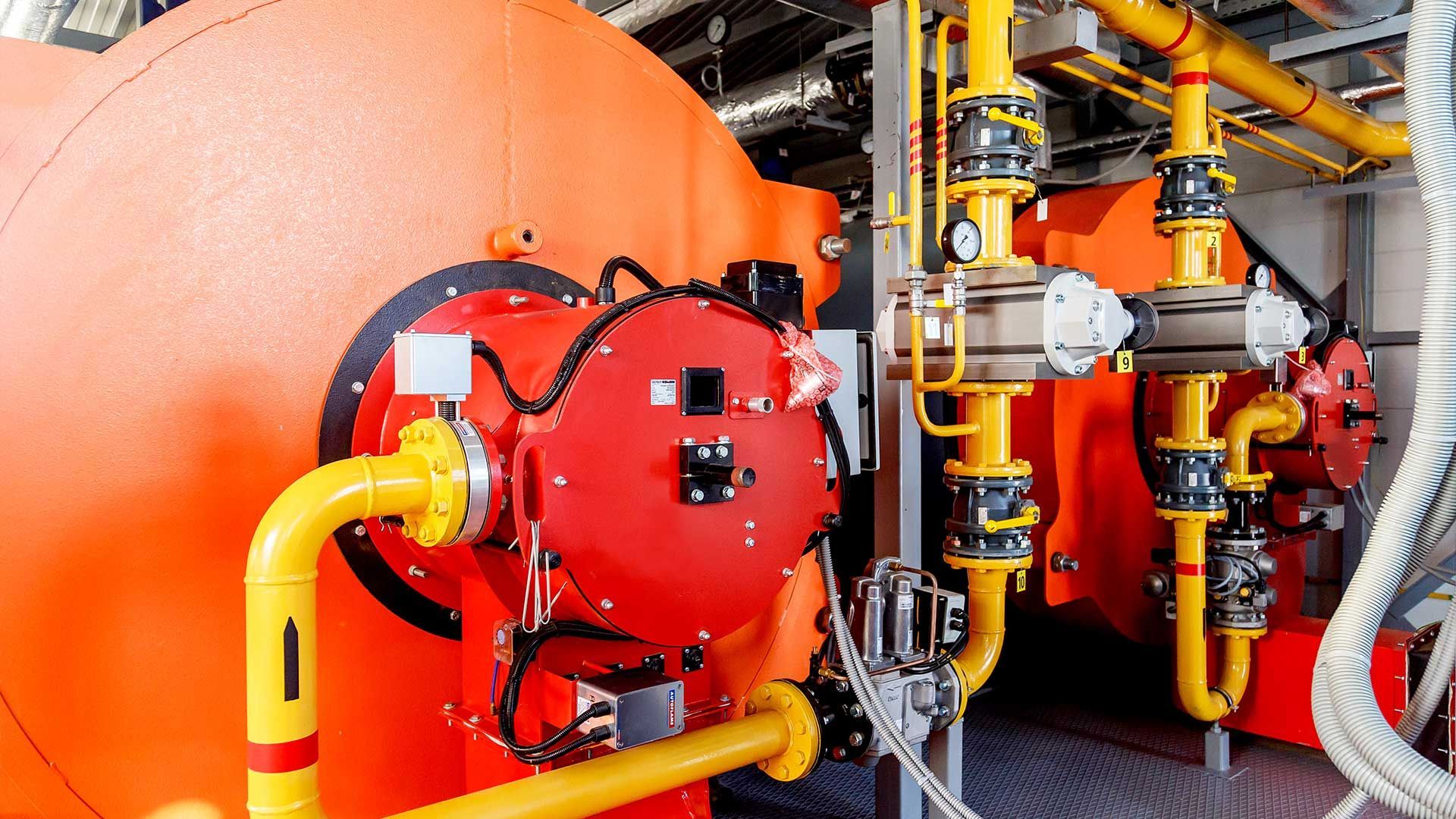Cost-Effective Boiler Cleaning Strategies for 2024
In the labyrinth of industrial operations, boilers stand as the unsung heroes, tirelessly converting water into steam for a myriad of applications from heating to powering machinery. As 2024 unfolds, the spotlight on maintaining these pivotal pieces of equipment has intensified, not just for their operational efficiency but also for the sustainability of business economics. The cornerstone of this maintenance is undoubtedly the cleaning regimen, specifically industrial boiler cleaning, which ensures that boilers operate at their peak efficiency while minimizing fuel consumption and emissions. This article delves into the realm of cost-effective boiler cleaning strategies, offering insights that blend traditional wisdom with the sparkle of 2024's innovations.
Understanding Boiler Fouling and Its Impact
At the heart of boiler maintenance is the battle against fouling, a term that encapsulates various forms of sediment and residue build-up, including scale, soot, and slag. This seemingly innocuous accumulation is a formidable adversary, capable of significantly hindering boiler efficiency. The insulating effect of fouling means more fuel is required to achieve the same level of steam production, thus inflating operational costs and carbon footprint. Moreover, the safety risks associated with neglected industrial boiler cleaning cannot be overstated, with the potential for catastrophic failures looming large over inadequately maintained systems.
Conventional Boiler Cleaning Methods
When delving into the realm of boiler maintenance, it's essential to understand the roots from which modern practices have evolved. Conventional boiler cleaning methods have laid the foundation for today's advancements, each method catering to specific types of fouling and operational setups. Here's a closer look at these traditional strategies, shedding light on their mechanics, applications, and the nuances that have shaped the transition to more contemporary approaches.
Chemical Cleaning
Chemical cleaning has been a staple in the maintenance of industrial boilers, primarily targeting mineral scale, rust, and other inorganic residues that impair heat transfer efficiency. This method involves circulating a chemical solution, often comprising acids like hydrochloric or citric acid, through the boiler to dissolve deposits. The process requires careful planning and control to prevent damage to the boiler materials and ensure the safety of the environment and personnel. While effective for deep cleaning, the disposal of used chemicals poses environmental challenges, prompting the industry to seek greener alternatives.
Soot Blowing
Soot blowing is a dynamic method aimed at removing soot and ash deposits from the heat transfer surfaces within a boiler. By using compressed air, steam, or water, soot blowers target these deposits, dislodging them from surfaces to enhance efficiency and prevent corrosion. The versatility and relative simplicity of soot blowing make it a popular choice for routine maintenance, particularly in boilers burning fuels with high ash content. However, its effectiveness can be limited by the accessibility of the boiler's internal areas and the nature of the deposits.
Manual Scraping and Brushing
Manual scraping and brushing stand as the most traditional of boiler cleaning methods, requiring direct physical effort to remove fouling. This labor-intensive approach provides a thorough cleaning option, particularly for components that are difficult to reach or for systems where more sophisticated methods are not feasible. Despite its effectiveness in certain scenarios, manual cleaning is time-consuming, poses significant safety risks to personnel, and can lead to inconsistent cleaning quality.
Water Lancing
Water lancing involves the use of high-pressure water jets to clean boiler tubes and surfaces. This method is effective in dislodging stubborn deposits and is commonly used in conjunction with other cleaning techniques. The precision and force of water lancing can efficiently clear away scale and sludge, but the method requires careful handling to avoid damage to the boiler tubes and ensure the safety of the maintenance crew.
The Shift to Modern Techniques
While these conventional methods have served the industry well, the shift towards more innovative, safer, and environmentally friendly techniques is evident. The limitations of traditional methods, such as the labor intensity of manual cleaning, the environmental impact of chemical cleaning, and the potential for damage with soot blowing and water lancing, have paved the way for advancements in boiler cleaning technology. These include the adoption of laser cleaning, automated systems, and eco-friendly chemical agents, reflecting a broader industry trend towards sustainability and efficiency.
As we continue to explore cost-effective boiler cleaning strategies, understanding the foundation laid by these conventional methods is crucial. They not only highlight the industry's journey towards innovation but also underscore the ongoing need for solutions that balance efficiency, safety, and environmental responsibility in industrial boiler maintenance.
Innovative and Cost-Effective Boiler Cleaning Technologies for 2024
As we navigate through 2024, the landscape of industrial boiler cleaning is being reshaped by technological advancements. The emergence of laser cleaning technology stands out, offering a precise, non-contact method to obliterate fouling without the abrasive side effects of traditional methods. Similarly, automated cleaning robots herald a new era of efficiency, capable of navigating the intricate inner workings of boilers with minimal human intervention.
Eco-friendly chemical agents are also gaining traction, addressing the environmental concerns of yesteryears' harsher chemicals. These biodegradable options promise effective scale and residue removal without the ecological baggage. Ultrasonic cleaning systems, too, are making waves, using high-frequency sound waves to dislodge fouling, a testament to the innovative spirit defining industrial boiler cleaning in 2024.
Integrating Smart Technology for Maintenance Optimization
The digital revolution is making its mark on industrial boiler cleaning, with IoT and AI leading the charge towards predictive maintenance. Smart sensors embedded within boiler systems can now monitor performance metrics in real-time, flagging potential fouling issues before they escalate. This proactive approach not only optimizes cleaning schedules but also significantly reduces the downtime and costs associated with unscheduled maintenance.
Best Practices for Cost-Effective Boiler Maintenance
Adopting cost-effective boiler maintenance practices is not merely about integrating the latest technologies but also about adhering to time-tested best practices. Regular inspections and adherence to a maintenance schedule are paramount, ensuring that boilers are cleaned before efficiency drops to critical levels. Training staff in the latest industrial boiler cleaning techniques and technologies is equally crucial, empowering them to recognize early signs of fouling and to execute cleaning procedures safely and effectively.
Regulatory and Safety Considerations
Navigating the regulatory landscape is a pivotal aspect of industrial boiler maintenance. As we move into 2024, adherence to safety standards and environmental regulations has never been more critical. Regulatory bodies worldwide are tightening the noose on emissions and safety standards, making compliance a key factor in the design and execution of industrial boiler cleaning strategies. These regulations not only mandate certain operational thresholds but also encourage the adoption of cleaner, more efficient cleaning technologies. Compliance, therefore, is not just about avoiding legal pitfalls; it's about ensuring the safety of personnel and the environment while optimizing operational efficiency.
In this vein, industrial boiler cleaning must be conducted with a keen eye on safety protocols. The use of hazardous chemicals, the
risk of high-pressure steam cuts, and the potential for explosive scale build-up are just a few of the dangers that must be mitigated through rigorous safety practices. Training programs and safety drills become indispensable, ensuring that every individual involved in boiler maintenance is equipped with the knowledge and tools to perform their duties safely.
The Future of Boiler Maintenance
As we peer into the future of industrial boiler maintenance, several trends begin to crystallize. The push towards sustainability is likely to continue unabated, with renewable energy sources and green technologies playing a more prominent role in boiler operations. The adoption of biomass boilers, for example, could redefine industrial boiler cleaning protocols, emphasizing the use of eco-friendly cleaning agents and technologies.
Moreover, the digital transformation of
boiler maintenance is set to continue, with AI and machine learning models becoming increasingly sophisticated. These technologies could predict fouling patterns with remarkable accuracy, further optimizing cleaning schedules and potentially extending the lifespan of
boiler components.
Another exciting prospect is the integration of augmented reality (AR) and virtual reality (VR) in maintenance protocols. These technologies could provide maintenance personnel with real-time, overlay information about the boiler's condition and cleaning procedures, enhancing both safety and efficiency.
Conclusion
As we navigate through 2024, the evolution of industrial boiler cleaning practices stands as a testament to the industry's resilience and adaptability. The confluence of technological innovation, regulatory pressures, and environmental considerations is driving a paradigm shift towards more efficient, safer, and cost-effective boiler maintenance strategies. By embracing these changes, we, at Boiler Technologies Unlimited, are at the forefront, ensuring that your boiler systems continue to operate at peak efficiency, safeguarding both your bottom line and the environment.
In this dynamic landscape, staying informed and adaptable is key. We understand that as new technologies emerge and regulations evolve, the strategies we rely on today may need to be reevaluated and adapted to meet the challenges of tomorrow. Yet, one thing remains clear: our commitment to efficient, safe, and cost-effective industrial boiler cleaning continues to be a cornerstone of our operational excellence.
In closing, we recognize that the journey towards optimized boiler maintenance is ongoing, and 2024 is but a waypoint on this journey. It is our responsibility as industry leaders and maintenance professionals to continue pushing the boundaries, ensuring that the future of industrial boiler cleaning is not only effective but also sustainable and safe for generations to come. At Boiler Technologies Unlimited, located in Lithia, FL, we're dedicated to this mission. Reach out to us at
813-469-7733 for unparalleled service and expertise in industrial boiler maintenance. Together, let's embrace the future of boiler maintenance with confidence and innovation.
FAQ’S
What factors most significantly affect the initial cost of an industrial boiler?
The initial cost of an industrial boiler is most significantly influenced by its capacity and size, the type of boiler technology (e.g., fire tube, water tube, condensing), the choice of fuel (gas, oil, electricity, biomass), and efficiency ratings. High-capacity, high-efficiency boilers with advanced technologies typically come with higher upfront costs.
How can the operational efficiency of a boiler impact long-term costs?
Operational efficiency affects fuel consumption rates and maintenance requirements, which can significantly impact long-term costs. A more efficient boiler consumes less fuel to produce the same amount of energy, leading to lower operational costs. Additionally, boilers that are easier to maintain can reduce long-term maintenance expenses.
Are there any incentives available to help offset the boiler installation cost?
Yes, many governments and industry bodies offer incentives for installing energy-efficient or environmentally friendly boilers. These incentives can include tax credits, rebates, and grants, which can help offset the initial installation costs and encourage sustainable practices.
What is the importance of choosing the right boiler supplier and installer?
Choosing the right supplier and installer is crucial for ensuring the boiler is suitable for your specific needs, is installed correctly, and operates efficiently. A reputable supplier and experienced installer can provide valuable after-sales support, warranty, and training for in-house maintenance staff, which can affect the boiler's reliability and longevity.
Can upgrading to a high-efficiency boiler provide a return on investment (ROI)?
Upgrading to a high-efficiency boiler can provide a significant ROI through reduced energy consumption and operational costs. While high-efficiency boilers may have higher upfront costs, the savings in fuel consumption can lead to a quicker payback period, making the investment worthwhile in the long run.


